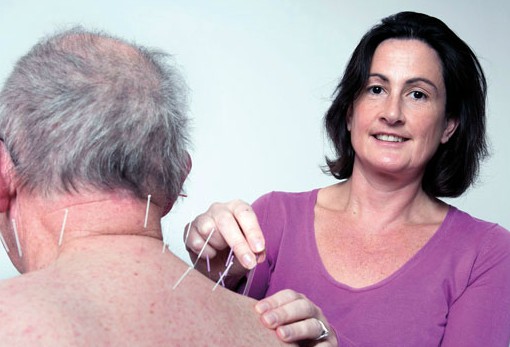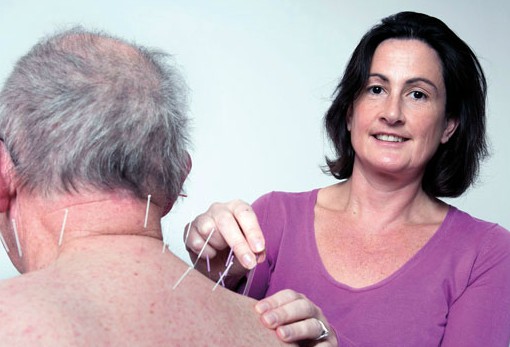Profile Dr Carolyn Rubens

Roles NHS GP in Eastbourne, president of the British Medical Acupuncture Society (BMAS) and founder of community-based acupuncture service (CBAS), Macmillan Horizon Centre, Brighton
Hours worked Four clinical sessions at NHS practice, two CBAS sessions and one private acupuncture session per week, plus two to three days a month at BMAS head office
Monday
Today I am at the British Medical Acupuncture Society (BMAS) head office, meeting committee members to discuss course figures. The Society has 1,665 members, of whom 871 are doctors. I took over as president in June and we are currently promoting courses to GPs, as the number we are training has dropped – partly a sign of the stress and overwhelm faced by many in the profession today. Afterwards, I prepare a presentation for a conference, mark a diploma and advise a mentee.
Tuesday
I’m at my NHS GP practice. I see a patient who previously had acupuncture for headaches and asks if it will help her back pain, which seems to be related to her work as a carer. She can’t take NSAIDs or codeine. One of the joys of using acupuncture is as an alternative to medication. Another is being able to deal with a problem such as back pain in a 10-minute consultation, without referral or advising time off work.
After surgery I visit a nursing home. I replace indwelling studs in an elderly woman’s sternum, which she is using to control breathlessness associated with her COPD. These stay in for up to four weeks and give her an element of control over her symptoms and the anxiety that can worsen her breathlessness.
Wednesday
This morning I meet commissioners to discuss proposals for a pilot using acupuncture to treat chronic pain and patients who are high attenders, following positive data from a recent Cochrane review.
I first encountered acupuncture as a registrar. A partner in my training practice was getting great results with a group of frequent attenders, many with chronic pain. Although there is still scepticism among GPs about the evidence base for acupuncture, this is partly due to the misunderstanding that it originates solely from Chinese medicine. Western medical acupuncture does not accept traditional theories, but applies neurophysiological principles and orthodox diagnosis before treatment. I now use acupuncture in my everyday practice and find it is very effective in helping to prevent over-medicalisation. It allows me to offer individualised, compassionate care and I use it for up to 40% of consultations in any given day.
Thursday
I drive to Brighton for my community-based acupuncture clinic. The clinic is free to cancer patients in Sussex, funded by the Sussex Cancer Fund, and housed in the new Macmillan Horizon Centre next to the Royal Sussex County Hospital. I run the clinic with a chemotherapy sister from the oncology unit who also trained with the BMAS. We treat side-effects of cancer treatment such as joint pains from aromatase inhibitors and chemotherapy-induced peripheral neuropathy as well as general side-effects of cancer such as fatigue.
I meet a stoical mother and teacher with metastatic breast cancer who has been referred for help with joint pains that started with anastrazole. She is anxious about being able to keep up the pace at work and her mood and energy are low. People’s responses and ways of dealing with serious illness vary enormously, and in this setting I have time to explore the emotional and psychological consequences of being unwell.
Friday
I’m at the Eastbourne Natural Health Clinic today – another chance to work at a calmer pace than in general practice. I enjoy being able to treat several symptoms at once, unlike in a GP surgery.
I have a GP trainee who observes me teaching self-needling to a patient with hot flushes who has responded well to a course of treatment. The trainee is impressed by the element of control this will give the patient, as well as the pressure it takes off the health service.
With more GPs wishing to reduce sessions and have portfolio careers and younger GPs interested in lifestyle medicine, I’m optimistic more will take up acupuncture. It’s rewarding, reduces the need for medications and referrals and patients love it.
Pulse October survey
Take our July 2025 survey to potentially win £1.000 worth of tokens













